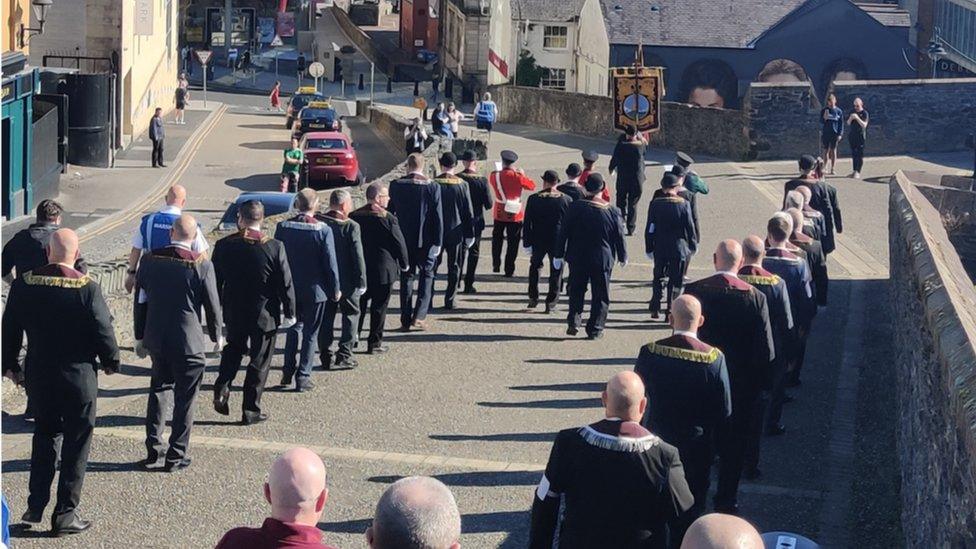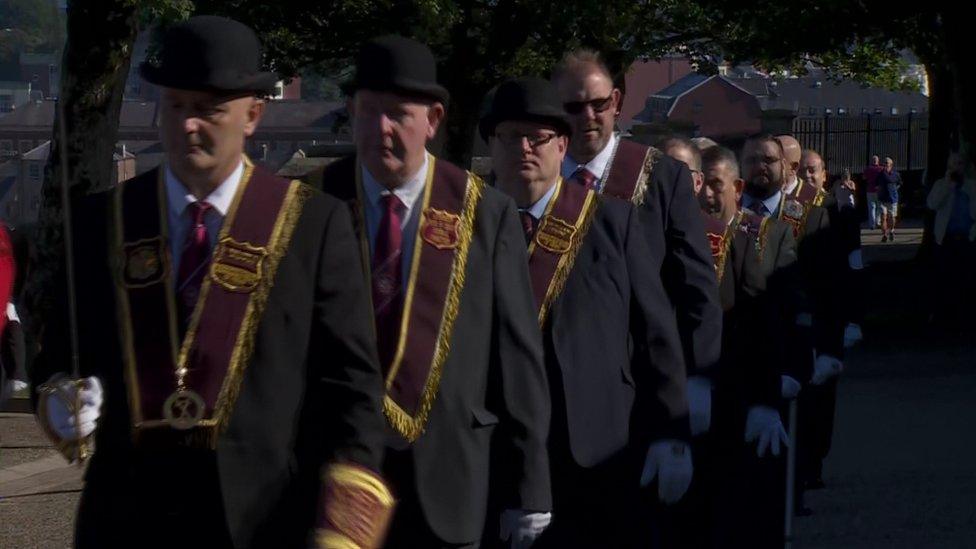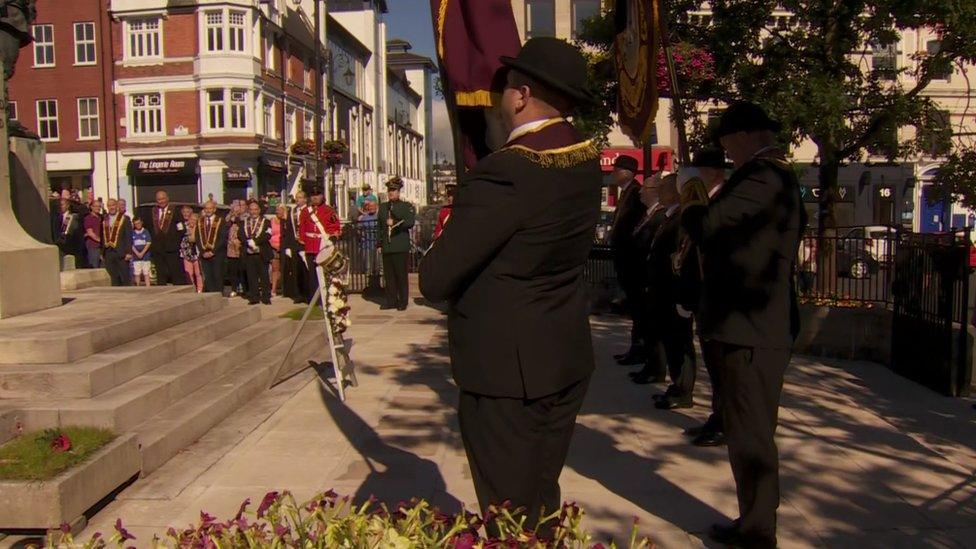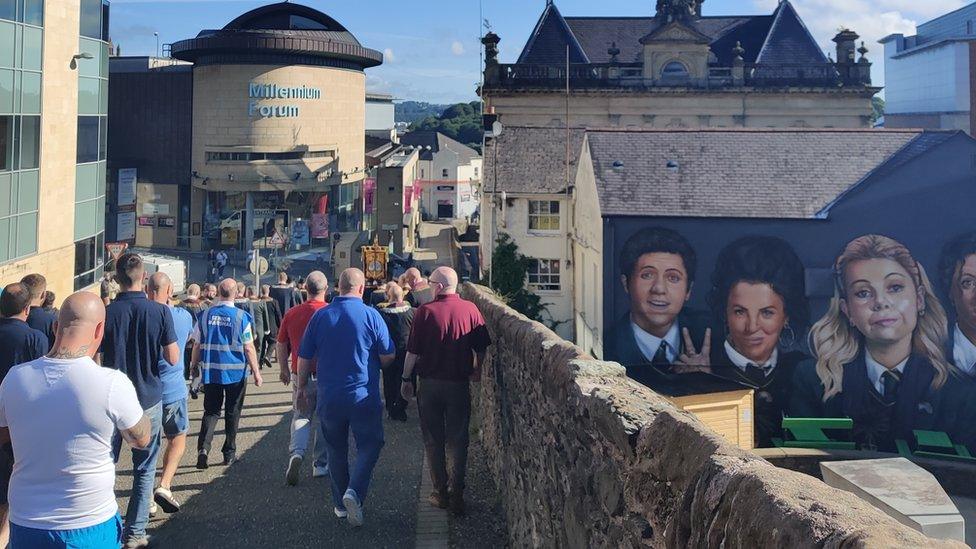Apprentice Boys parade on reduced scale due to coronavirus
- Published

The annual Apprentice Boys parade has taken place in Londonderry, but on a reduced scale due to the pandemic.
Traditionally, thousands have attended one of NI's biggest parades, marking the anniversary of the ending of the Siege of Derry in August 1689.
This year, just 30 representatives walked the walls, applauded by small groups of people watching.
Governor of the Apprentice Boys, Graeme Stenhouse, said the event this year was "humbling", but dignified.
"I thought it was a very humbling experience," he said.
"I would say today we created history - there's never been anything like that before.

This year, just 30 representatives walked the walls of the city
"We're living in unprecedented times and we look forward to 12 months' time when hopefully there aren't any guidelines in place and we'll be able to come back to Londonderry and celebrate our culture, our history and identity in a bigger manner."
The governor led the parade from the walls to the Diamond, where a wreath-laying ceremony took place at the war memorial with solos from a bugler and a piper.
Marchers then processed to St Columb's Cathedral, where the Dean performed an outdoor service at the Siege Heroes' Mound.

A wreath-laying ceremony took place at the war memorial
The modest parade passed off peacefully with a small police presence.
More than 80 parades are set to take place across Northern Ireland on Saturday and Mr Stenhouse urged branch club organisers to also follow official guidance, limiting numbers to a maximum of 30 participants.

The siege of Derry took place against the background of the deposed Catholic King James II's attempt to regain his crown from his Protestant son-in-law, King William III.
Also known as William of Orange, or King Billy, the new monarch was supported by Protestants in Derry.
At the start of the siege of Londonderry in 1689, 13 apprentice boys slammed the city gates against King James' advancing Jacobite army.
The Apprentice Boys of Derry are based upon this defiant action of "no surrender", and hold their main parade in August to celebrate the relief of the city and the end of the siege.
The ending of the siege is known as the Relief of Derry.